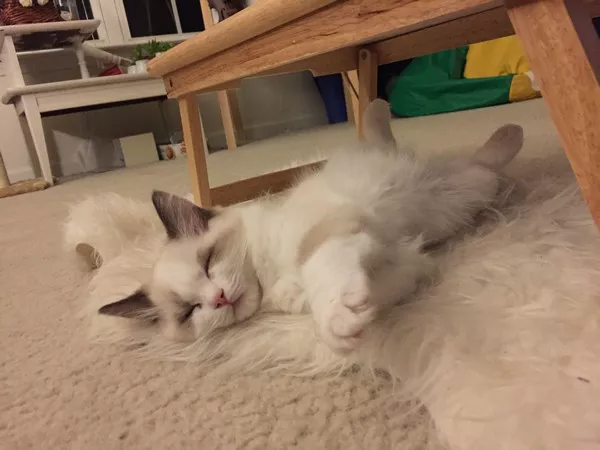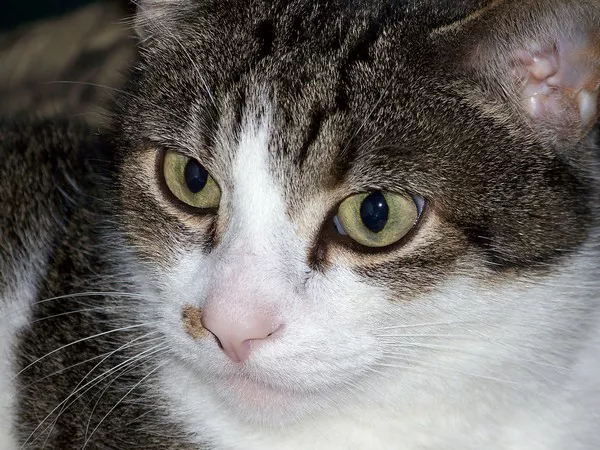Cats have long held a reputation for being independent and mysterious creatures. While they may not be as overtly expressive as dogs, cats have their unique ways of communicating with their human companions. One question that often intrigues cat owners is whether their feline friends can recognize their own names. In this article, we’ll delve into the fascinating world of feline communication and explore the extent to which cats can distinguish and respond to their names.
The Complexity of Feline Communication:
Cats communicate with their owners through a combination of vocalizations, body language, and facial expressions. While cats may not bark, wag their tails, or exhibit overt signs of excitement like dogs, they are highly communicative animals when you know what to look for.
Can Cats Recognize Their Names?
The short answer is yes, cats can recognize their names, but the degree to which they respond may vary from cat to cat. Several factors influence a cat’s ability to recognize their name:
Tone of Voice: Cats are sensitive to the tone of voice used when calling their names. If you use a consistently warm and friendly tone, your cat is more likely to respond positively. Conversely, using a stern or angry tone may cause them to associate their name with negative experiences.
Consistency: Cats are creatures of habit. Consistently using the same name and reinforcement for a cat will help them associate that particular combination of sounds with themselves.
Socialization: Cats that are well-socialized from a young age tend to be more responsive to their names. Socialization helps build a strong bond with their human companions.
Individual Personality: Just like humans, cats have unique personalities. Some cats are more sociable and responsive, while others may be more independent and less interested in responding to their names.
Environmental Distractions: Cats are highly attuned to their surroundings. If there are competing stimuli or distractions in their environment, they may not respond to their name.
Emotional State: A cat’s emotional state can affect their responsiveness. If they are feeling stressed, anxious, or unwell, they may be less likely to react to their name.
Observing Your Cat’s Response:
To determine if your cat recognizes their name, observe their behavior when you call them. While their response may not be as obvious as a dog’s excited tail-wagging, you can look for subtle signs, such as:
Ear Movement: Cats often prick their ears forward or slightly turn them in the direction of the sound when they hear their name.
Eye Contact: Your cat may make eye contact with you when you call their name, signaling recognition.
Tail Movement: While not as pronounced as a dog’s tail-wagging, some cats may exhibit slight tail movement or a twitch when they hear their name.
Approach or Vocalization: A responsive cat may approach you or vocalize (meow) in acknowledgment of their name.
It’s essential to be patient and observe your cat’s unique response patterns. Remember that not all cats will react in the same way, and some may be more subtle in their responses.
Building a Stronger Connection:
If you want to strengthen your cat’s recognition of their name and encourage more responsive behavior, consider the following tips:
Use Positive Reinforcement: When your cat responds to their name, reward them with affection, treats, or play. Positive reinforcement helps create a positive association with their name.
Consistency is Key: Use your cat’s name consistently and avoid nicknames that might confuse them. Over time, they will learn to associate the specific sounds of their name with themselves.
Combine with Treats: During training sessions, use treats to reinforce your cat’s response to their name. This can be particularly effective for building recognition.
Be Patient: Cats may not respond immediately or every time. Be patient and give them time to adjust and learn.
Minimize Negative Associations: Avoid using your cat’s name when scolding or in conjunction with unpleasant experiences. This will help them maintain a positive association with their name.
Interactive Play: Engage in interactive play sessions with your cat. This can strengthen your bond and make them more responsive to their name.
Conclusion:
While cats may not react to their names in the same enthusiastic manner as dogs, they can recognize and respond to them under the right circumstances. Understanding the subtleties of your cat’s communication style and employing positive reinforcement techniques can help strengthen the connection between your cat’s name and their identity. As you build a deeper bond with your feline companion, you’ll gain a better understanding of their unique responses and behaviors, further enhancing your relationship.






















